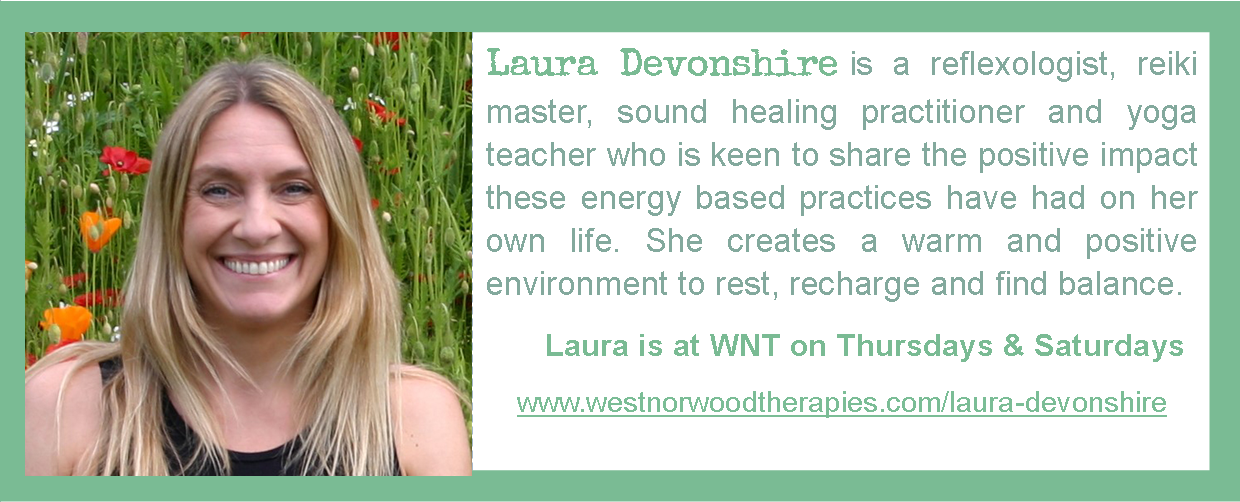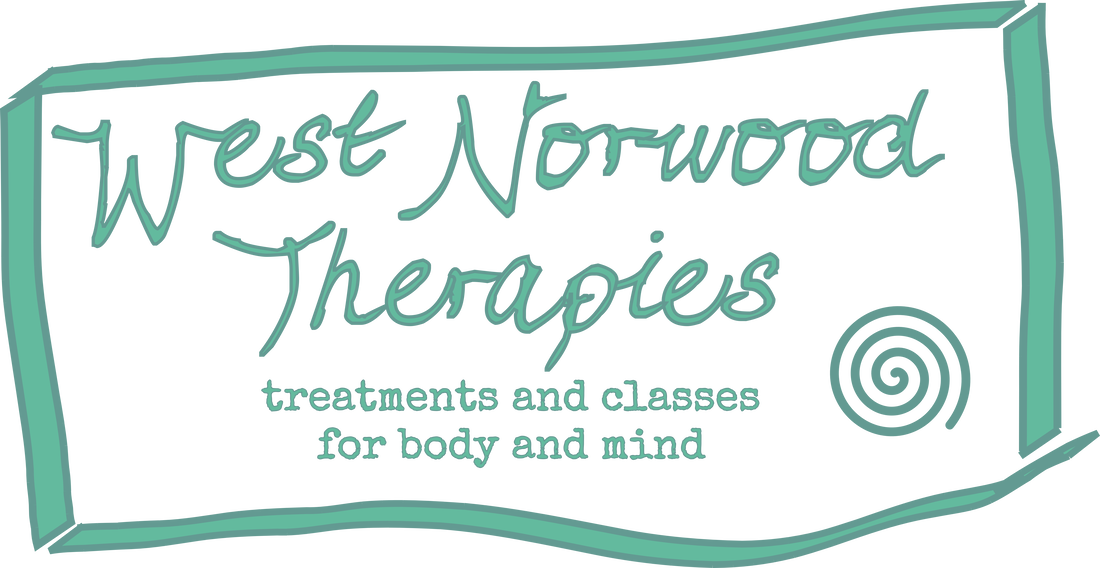|
Reflexologist, reiki and sound healing practitioner Laura Devonshire looks at the various aspects that comprise holistic wellness What is Holistic Wellness?
The word ‘Holistic’ derives from ‘Holism’, with Greek roots ‘Holos’, meaning whole, complete, entire. Holistic Wellness is looking at a number of elements relating to a person and their way of life that contribute to them feeling at their most optimal. Each of these parts are intimately connected and if one part is out of balance it has an impact on all the other parts. Therefore, we cannot only focus on one part in isolation, we must consider all parts to have a full picture and understanding of how a person is. Below are 5 aspects that contribute to our whole way of being: Physical Wellbeing – this relates to our body and its associated systems functioning optimally. For this to happen we consider a number of influences: the foods we eat and a balanced diet, the amount of, and quality of sleep we have, keeping hydrated and daily exercise/movement. They all play a huge part in contributing to our physical energy levels and how our bodies cope and respond to daily demands, medical conditions and dis-ease. Mental Wellbeing - an optimal state of mental wellbeing does not mean an absence of stress but more one’s ability to process and juggle the events of day to day life. Our mental wellbeing changes and we can experience highs and lows, it can change daily, weekly, monthly, even hourly depending on our life experiences. When we feel in balance and flow, we make healthy choices, maintain healthy boundaries and are able to be fully present in the moment. Emotional Wellbeing - our sense of self, our self-esteem and how we think, feel and relate to ourselves and others. It is being able to recognise, feel and process our full range of emotions: joy, anger, stress, sadness etc... and our ability to communicate them with others. Our emotional wellbeing includes developing emotional resilience to be able to adapt and cope with changing situations. Our emotional wellbeing is intimately connected to our mental and physical wellbeing, it is estimated that 75% of illnesses are caused by stress. Spiritual Wellbeing - an aspect that will look different for each person as it’s such a personal part of one’s overall wellness. Spiritual health relates to our sense of life-meaning and purpose and how we experience and integrate this into our lives. Taking time to do the things that ‘light your fire’, finding the things that inspire you and make you ‘feel alive’. It may mean taking time to sit quietly in contemplation, having a mindfulness practice. Or conversely could be more dynamic and involve activities like dancing or singing. Spending time in nature can be really soothing for the soul and cultivating a sense of being connected to something greater than ourselves. Social Wellbeing - relates to the connections we have with other people. This can be with family, friends, community, common interest groups ie: social, work, sports, spiritual, religious etc... Overall as human beings we are wired for connection, however, one person may thrive in small intimate settings whilst another may thrive in larger groups. Having connections where you feel supported, heard and held can have a significant impact on our overall wellbeing. We can see how each of the above parts has a significant impact on how we feel on a day to day basis and how they continually interact and overlap: How we think and feel affects us physically. What we eat affects us mentally and emotionally. How we move and how we socialise affects how we feel. So although we have broken the whole down into parts to explore different aspects of the whole, they each contribute to the whole and also each reflect the whole. As we understand each aspect of ourselves and what does/does not work for us we can implement appropriate self-care practices to support each aspect of our lives. Sometimes we develop an image of how we are and what we are like and don’t allow ourselves to explore other possibilities. Acknowledging that on different days and at different times in our lives we may need different things and giving ourselves space to explore and room for change. Taking an holistic approach to your wellbeing does not replace medical advice or treatment when it is needed, but regardless of any existing health issues it can be really beneficial in supporting your current and future health and wellbeing.
1 Comment
|
AuthorBlogs from the WNT team. For our blogs from before June 2020 please see individual profile pages - it's a good way to get to know practitioners too. Archives
June 2024
Categories
All
|
|
Visit us - by appointment only please - in the office block in the Access Self Storage premises at 443 Norwood Road, London, SE27 9DQ
[email protected] Phone - please contact practitioners directly, or if not in a rush you can leave a message for us to call you back at 07931876931. |


 RSS Feed
RSS Feed
